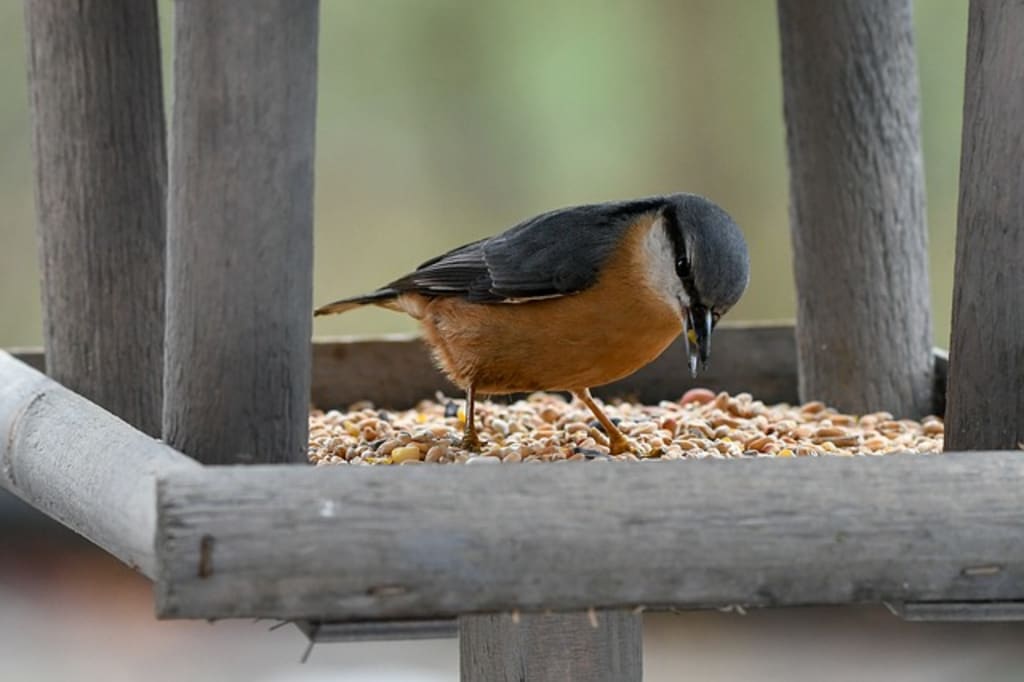Choosing A Pet Bird — Owner’s Guide
PET CARE

Birds have long captivated humans, and many different species are maintained as pets in many different cultures today. Particularly if there is a lack of room or there are members of the family who are allergic to other animals, they can be wonderful additions to homes.
What qualities are you seeking in a bird? Your tastes for a bird's appearance, personality, companionship, or talkativeness will influence your decision.
Appearance
Pet birds come in a variety of sizes and hues, from finches with a few-inch wing spread to macaws with a four-foot wingspan. The colors of bird feathers vary from the typical grey, yellow, red, and green found in nature to unusual color combinations produced by selective breeding.
Companionship
Animals can be excellent company. Eagles are stunning to look at, and many species have amazing singing and speaking abilities. They make amusing playmates and partners for other pursuits. The majority of companion bird species are not domesticated, though, so they are not accustomed to extended physical contact, such as stroking, petting, or sitting on a person's shoulder or lap. Inappropriate hormonal behaviors in birds may be encouraged by this kind of interaction, which could result in undesirable behaviors and activities like regurgitation, self-stimulation, aggression, and excessive egg-laying. A companion bird might not be the best pet for you if you're seeking for something to sit on your lap.
Pet bird average lifespans
Bear in mind that a bird's lifespan varies greatly when thinking about getting one as a companion. Although they can live up to 18 years, parakeets typically survive for six years. Although cockatiels typically survive for 16 years, many have lived for over 30 years. Although finches have been known to live up to three times longer than the usual lifespan of four to five years. Even canaries, whose lifespan is typically eight years, have been known to reach 20 years old. For larger birds (like parrots, conures, macaws, and cockatoos), recorded life spans vary from 20 years to more than 100 years! Always keep in mind that when you choose a pet, you are promising to provide for it throughout its entire existence.
Preparation To Get the Pet Bird
All bird species require clean water, appropriate housing, the right amount of light, good sanitation, and routine veterinary exams. A diet that is entirely or primarily composed of seeds and nuts is not considered to be a balanced diet. Consult a veterinarian for advice on choosing and looking for your pet bird if you're thinking about getting one. Also, it’s crucial to take note of the advice of a bird pet expert, Donald Bergerson, who said that “It's crucial to take good care of your pet bird. Although pet birds are different from cats and dogs, maintaining their health is not any more challenging. The fundamentals include the proper pet bird diet, a clean cage, fresh food and water, safe avian toys, exercise, and plenty of care. A grate that separates your pet bird from the substrate and plenty of room for movement should be included in your pet bird cage..”
Here are some basic pointers for housing your pet bird properly:
Until they have been confined for the necessary amount of time, all new birds should be kept apart from birds already residing in the home. This entails having distinct tools and utensils as well as a separate air supply. The recommended quarantine time should be followed by a veterinary examination, so talk to your veterinarian about it.
Before you transport the bird home, make sure the cage is ready with the proper food and water. Start off by giving your bird the same food that the vendor did. Changes in diet should be implemented progressively. If a bird is currently on an unbalanced diet, talk to an avian veterinarian about how to properly transition them to a healthy diet.
Getting a bird for a companion
Bird-specific pet stores and charitable groups that rehome pet birds are frequently reliable sources and can give you advice on how to care for your new bird. Alternative sources for birds include neighborhood shelters, rescue organizations, and even former owners themselves. However, prospective owners should carefully investigate the reasons behind the birds' surrender by speaking with the caregivers of these animals. If you have the required expertise and training, you might think about fostering a bird with unique medical or behavioral requirements.
About the Creator
JANE Smith
I am a pet lover.





Comments
There are no comments for this story
Be the first to respond and start the conversation.